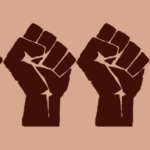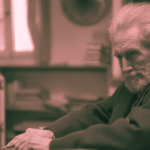Even the worst of us have feelings. That assassin with the high-powered rifle atop the building, squinting through their scope at their unsuspecting target, might yearn in their heart for something more. At least, that’s the message we’re supposed to take away from certain crime films that suggest their mass-murdering anti-heroes are nursing serious cases of existential despond.
“Le Samourai,” directed by Jean-Pierre Melville, can be considered the ur-text of this particular subgenre; it plays like a film noir as conceived by Jean-Paul Sartre: a man living in a dangerous, repetitive world who desires a greater sense of self. In the six decades since its release, other films have borrowed that concept, tossing away some elements while underscoring others. In these assassins’ dilemmas, we perhaps see a bit of ourselves. Here are some of the best examples:
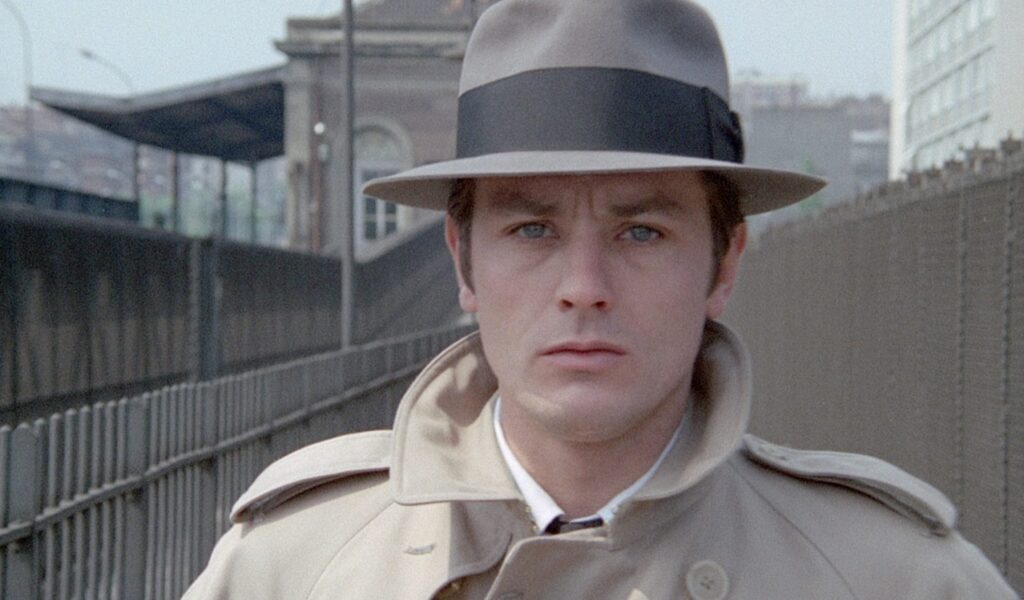
Le Samourai (1967)
Jean-Pierre Melville’s iconic film stars Alain Delon as Jef Costello, a hitman who lives in a minimalist Parisian apartment with a tiny bird, smokes cigarettes like they’re going out of style, and carries out meticulously planned assassinations. While carrying out a hit at a nightclub, he spares a witness, a performer named Valerie (Cathy Rosier); she later refuses to identify him as the killer when the cops drag him in for interrogation.
Although he manages to survive that initial encounter with the police, Jef’s largely solitary, carefully constructed existence begins to spin apart when his handlers decide they want him dead rather than risk him falling into the hands of the law. The situation is exacerbated by a detective (Francois Perier) who dispatches an army of cops to hunt Jef relentlessly through a rainy, depressingly gray Paris. Delon plays Jef as an automaton, his face impassive—but underneath, something is starting to crack. His final act is an acknowledgment that he lives apart from the rest of humanity, with no way to bridge the gap; a man doomed by his own code of honor.
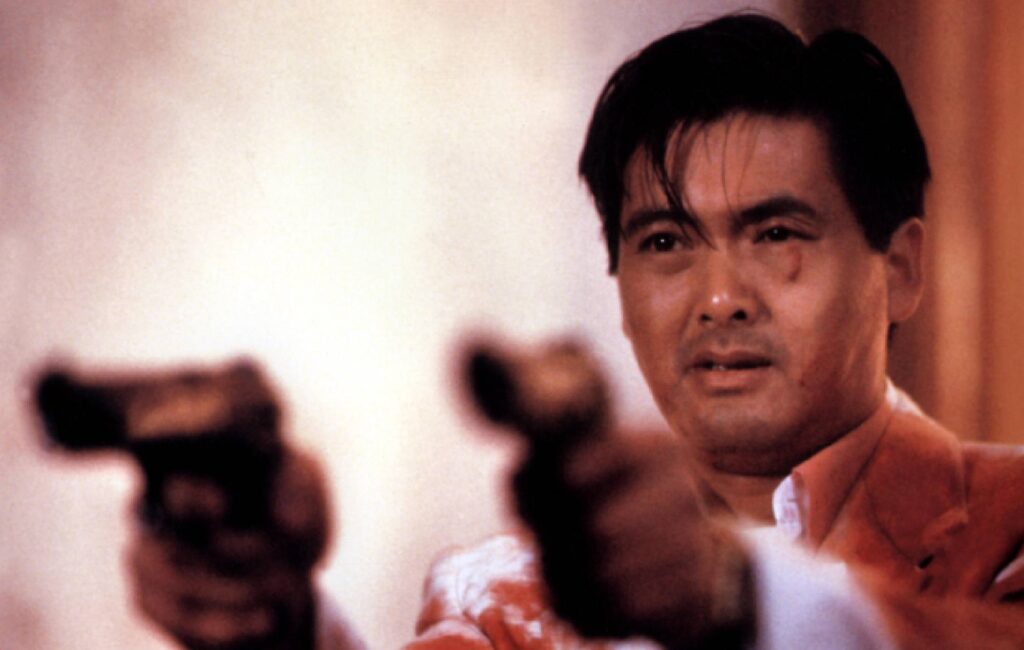
The Killer (1989)
John Woo’s blood-soaked homage to “Le Samourai” is also widely regarded as one of his best films. The plot points are instantly familiar to anyone who’s watched even a few movies in the existential-assassin genre: mob hitman with a code accidentally harms an innocent, then decides to carry out “one last job” that will balance out the karmic scales. Meanwhile, a driven cop pursues the hitman; the two build a grudging, mutual respect.
At its heart, “The Killer” is a noir fantasy, and just as much a doomed romance as a prime example of the “heroic bloodshed” genre that Woo helped pioneer in the 1980s and 90s. Chow Yun Fat is effortlessly cool as Ah Jong, the kind of assassin who wears a flowing white scarf to a bloody shootout. During the opening hit, he accidentally blinds a nightclub singer (Sally Yeh); his guilt drives him to undertake a particularly tricky assassination to pay for an eye operation, which kicks off an escalating series of shootouts and betrayals. Woo borrows Melville’s triptych of meticulous hitman, nightclub singer, and obsessive detective; but whereas “Le Samourai” concludes with three gunshots and a note of existential ambiguity, “The Killer” ends in an apocalyptic firefight that shows there’s no real redemption for even the most contrite hitmen.
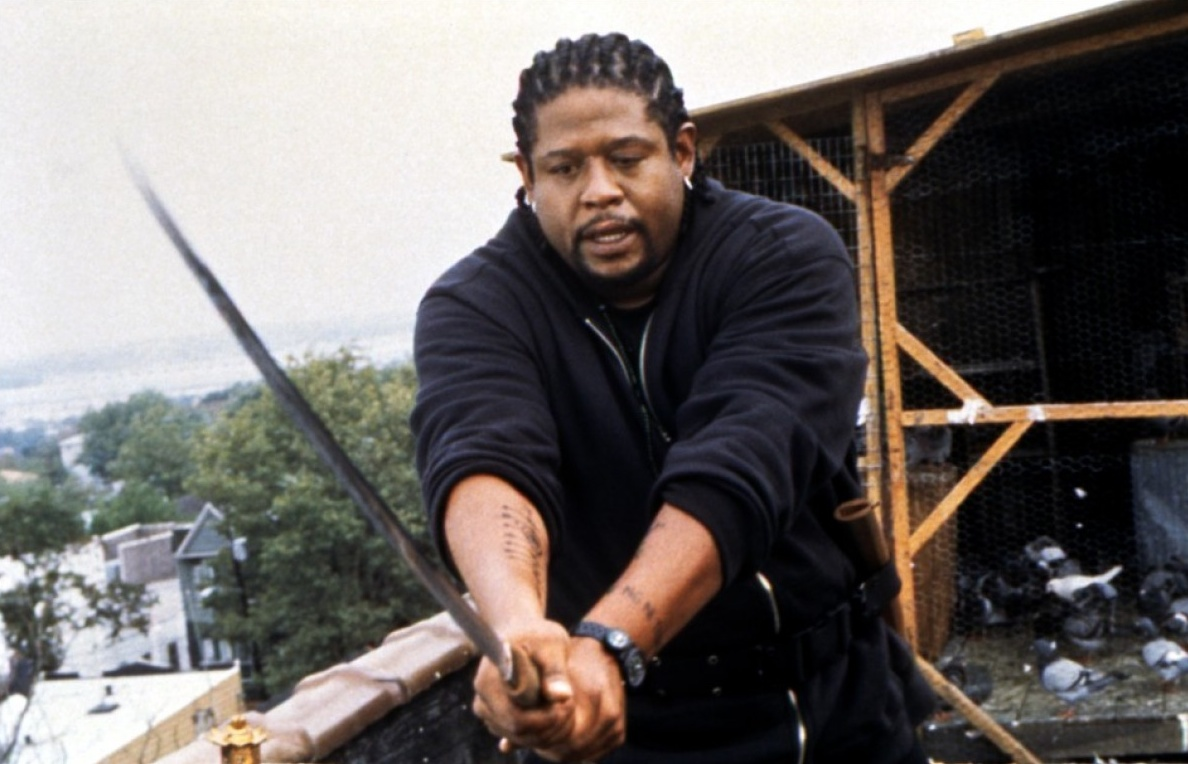
Ghost Dog (1999)
You get the sense that Ghost Dog (Forest Whitaker), the anti-hero of Jim Jarmusch’s eponymous film, would have been more comfortable in a different era. He’s obsessed with the samurai code and the “Hagakure,” a book of warrior spiritualism. He relies on carrier pigeons to communicate. The problem is that Ghost Dog is stuck in a place that looks suspiciously like Jersey City circa 1999, and he’s tasked with killing people for a mob of dull gangsters who can’t differentiate between Hagakure and a hoagie. But Ghost Dog is going to maintain his embrace of an ancient code, even if it means his death. He’s a man out of time in more ways than one.
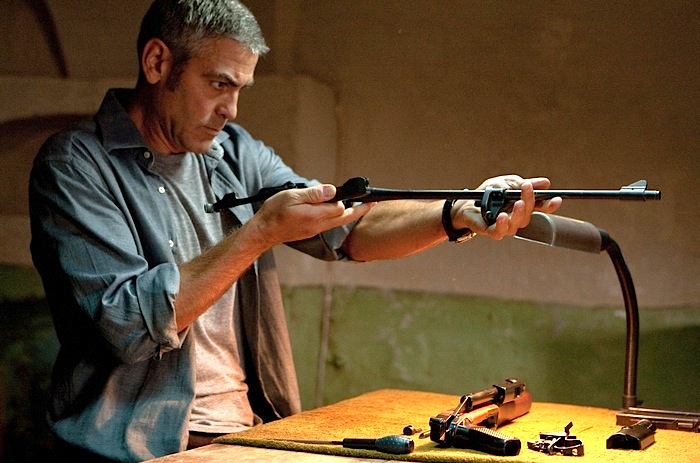
The American (2010)
One of the pleasures of this genre is the inevitable montage wherein the hitman prepares for his deadly task. (Some examples really lean into it; a film like “The Day of the Jackal” is essentially one long preparation sequence.) “The American” is about an assassin (George Clooney) who’s hungry for connection, but whose attempts to overcome his isolation get a little messy. It also arranges a great character-building scene around the construction of a suppressor:
Clooney’s character is clearly good at what he does. It’s when he wants to become something else—a man in love, part of a pair—that he gets in serious trouble. Like Delon in “Le Samourai,” Clooney does his best to hide his trademark charm behind a blank expression, but his eyes betray a longing, almost a hunger, for connection.
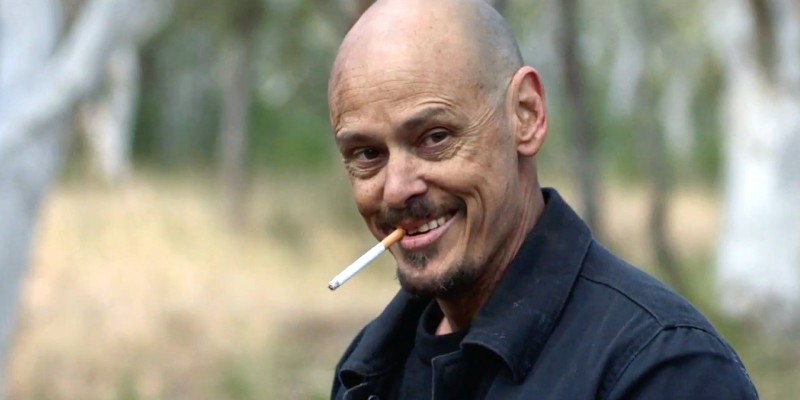
Mr Inbetween (2018)
If Woo takes a maximalist approach to an assassin’s existential dilemmas, the Australian television show “Mr Inbetween” does its best to underplay its central character’s issues with his chosen lifestyle. Ray Shoesmith (Scott Ryan, who also created the show) is the kind of bloke who’ll throw someone off a ledge, but tenderly remove a bug from the shower rather than squish it; he treats his young daughter like a princess, then ruthlessly mows down various scumbags.
Like so many other people in messy professions, Ray’s learned the art of compartmentalization. But throughout the show’s three seasons, maintaining the “wall” that separates his professional and personal lives becomes increasingly difficult; when you toss someone through a sliding door over a relatively minor family dispute, it’s time to admit you have a problem:
Whether Ray can solve his duality becomes the main tension of the series, and his fate makes one thing clear: it’s hard for a violent man to overcome his nature, no matter how hard he tries.










